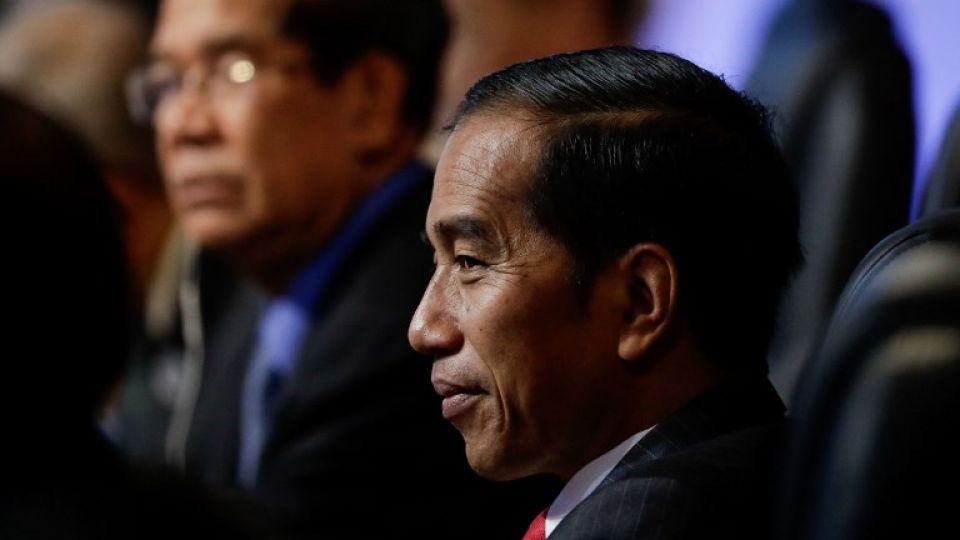February 11, 2020
Jokowi makes historic address in Canberra, hopes new trade deal will lift both economies
Indonesian President Joko Widodo delivered a rare address to Australia’s Parliament yesterday as the two nations committed to a “new beginning” aimed at boosting trade and ending their history of strained ties.
Making the first address by an Indonesian leader to a joint sitting of Parliament since Mr Susilo Bambang Yudhoyono in 2010, Mr Joko said a new trade deal between the two countries could strengthen economic growth and “turn rivalries into cooperation”.
Such collaboration would be crucial, he said, as economic uncertainties threaten to disrupt democracies in the coming decades. He said the trade deal could enable the two neighbours to work together to pursue closer relations with countries across the Pacific.
“Indonesia and Australia must become the anchors for cooperation in the Indo-Pacific region,” Mr Joko, widely known as Jokowi, told Parliament. “Stagnation of economic growth and even recession are looming large, and it is feared that the values of democracy and diversity are becoming more marginalised.”
He outlined a range of areas of potential collaboration with Australia, including combating protectionism, promoting democracy and human rights, and cooperating to address climate change. Both countries are island nations threatened by rising seas and both are major coal exporters that have experienced devastating bush and forest fires.
Mr Joko urged the two countries to explore sustainable development by pursuing environmentally friendly innovation, citing his plan to move the nation’s capital from Jakarta to “a smart metropolis with green technology”.
“We must work together to protect the environment, to achieve sustainable development and reforestation in forest and river upstream areas, to prevent forest and land fires, to commit to lowering carbon emissions and to develop renewable energy and other green technologies,” he said.
Australia’s Prime Minister, Mr Scott Morrison, said both leaders wanted to see “an open, prosperous Indo-Pacific underpinned by strong institutions, rules and norms”.
“For Australia, we see Indonesia’s success as something to be celebrated,” he told Parliament.
“We count Indonesia among our most important partners… There are many challenges in the Indo-Pacific region… We need partners. We need our friends.”
The two countries have built strong counterterrorism and security ties and have enjoyed relatively warm ties between their leaders. But, despite their close proximity, the two neighbours have long struggled to improve their trade and business ties.
Trade between the two countries was worth A$16.8 billion (S$15.6 billion) in 2018, making Indonesia Australia’s 13th largest partner.
In contrast, trade with Singapore in the same year was worth A$32.2 billion, making it Australia’s fifth largest partner.
The long-awaited trade deal between Jakarta and Canberra was finally ratified by Indonesia’s Parliament last week. Mr Joko and Mr Morrison have agreed to adopt a 100-day action plan to swiftly implement it.
Mr Morrison said he would reassess Australia’s visa conditions to make it easier for Indonesians to visit. He also announced that Australia’s largest university, Monash University, will become the world’s first university to open an overseas campus in Indonesia under the trade deal.
But some analysts were sceptical about whether the new trade deal will be enough to significantly boost investor confidence and encourage the people and businesses of the two countries to engage.
Professor Tim Lindsey, director of the Centre for Indonesian Law, Islam and Society at Melbourne University, said the deal was long overdue but was “not a perfect or complete solution”.
“Jokowi’s rhetoric of open markets has a long way to go if it is to overcome strong protectionist traditions in the legislature, the courts and the public service,” he told ABC News. “Australian businesses are still very nervous about legal certainty and contract enforcement in Indonesia, and they will be very cautious.”
But analysts have noted that China’s rise has meant the overall interests of the two countries are becoming more aligned as both seek to keep Beijing’s regional influence in check.


